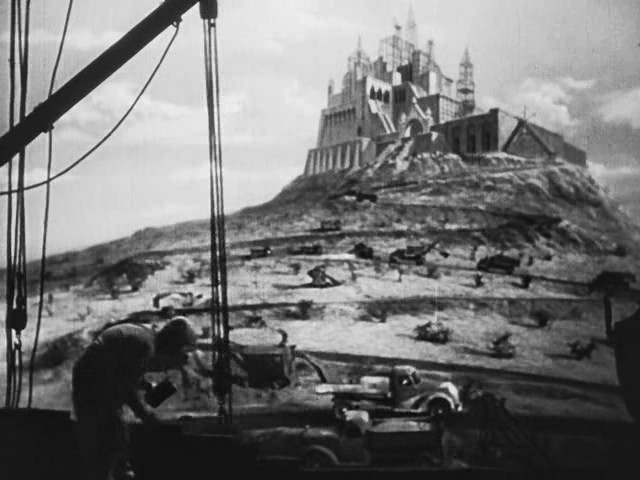Kubla Khan
BY SAMUEL TAYLOR COLERIDGE
Or, a vision in a dream. A Fragment.
A stately pleasure-dome decree:
Where Alph, the sacred river, ran
Through caverns measureless to man
Down to a sunless sea.
So twice five miles of fertile ground
With walls and towers were girdled round;
And there were gardens bright with sinuous rills,
Where blossomed many an incense-bearing tree;
And here were forests ancient as the hills,
Enfolding sunny spots of greenery.
But oh! that deep romantic chasm which slanted
Down the green hill athwart a cedarn cover!
A savage place! as holy and enchanted
As e’er beneath a waning moon was haunted
By woman wailing for her demon-lover!
And from this chasm, with ceaseless turmoil seething,
As if this earth in fast thick pants were breathing,
A mighty fountain momently was forced:
Amid whose swift half-intermitted burst
Huge fragments vaulted like rebounding hail,
Or chaffy grain beneath the thresher’s flail:
And mid these dancing rocks at once and ever
It flung up momently the sacred river.
Five miles meandering with a mazy motion
Through wood and dale the sacred river ran,
Then reached the caverns measureless to man,
And sank in tumult to a lifeless ocean;
And ’mid this tumult Kubla heard from far
Ancestral voices prophesying war!
Floated midway on the waves;
Where was heard the mingled measure
From the fountain and the caves.
It was a miracle of rare device,
A sunny pleasure-dome with caves of ice!

A damsel with a dulcimer
In a vision once I saw:
It was an Abyssinian maid
And on her dulcimer she played,
Singing of Mount Abora.
Could I revive within me
Her symphony and song,
To such a deep delight ’twould win me,
That with music loud and long,
I would build that dome in air,
That sunny dome! those caves of ice!
And all who heard should see them there,
And all should cry, Beware! Beware!
His flashing eyes, his floating hair!
Weave a circle round him thrice,
And close your eyes with holy dread
For he on honey-dew hath fed,
And drunk the milk of Paradise.
Description from Marco Polo, 1278:
Round this Palace a wall is built, inclosing a compass of 16 miles, and inside the Park there are fountains and rivers and brooks, and beautiful meadows, with all kinds of wild animals (excluding such as are of ferocious nature), which the Emperor has procured and placed there to supply food for his gerfalcons and hawks, which he keeps there in mew. Of these there are more than 200 gerfalcons alone, without reckoning the other hawks. The Khan himself goes every week to see his birds sitting in mew, and sometimes he rides through the park with a leopard behind him on his horse's croup; and then if he sees any animal that takes his fancy, he slips his leopard at it, and the game when taken is made over to feed the hawks in mew. This he does for diversion.
Moreover at a spot in the Park where there is a charming wood he has another Palace built of cane, of which I must give you a description. It is gilt all over, and most elaborately finished inside. It is stayed on gilt and lacquered columns, on each of which is a dragon all gilt, the tail of which is attached to the column whilst the head supports the architrave, and the claws likewise are stretched out right and left to support the architrave. The roof, like the rest, is formed of canes, covered with a varnish so strong and excellent that no amount of rain will rot them. These canes are a good 3 palms in girth, and from 10 to 15 paces in length. They are cut across at each knot, and then the pieces are split so as to form from each two hollow tiles, and with these the house is roofed; only every such tile of cane has to be nailed down to prevent the wind from lifting it. In short, the whole Palace is built of these canes, which I may mention serve also for a great variety of other useful purposes. The construction of the Palace is so devised that it can be taken down and put up again with great celerity; and it can all be taken to pieces and removed whithersoever the Emperor may command. When erected, it is braced against mishaps from the wind by more than 200 cords of silk.




No comments:
Post a Comment